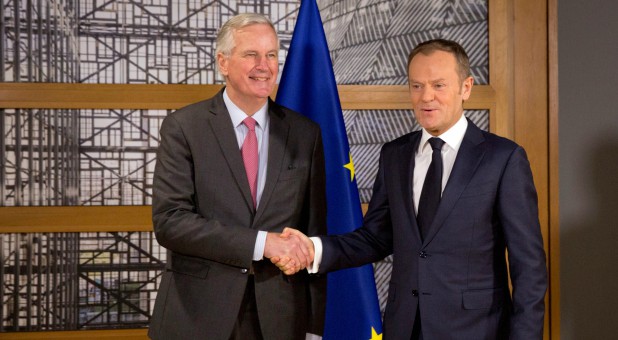European Union a ‘Conspiracy of the Elites,’ Media Mogul Claims
For many Americans, Washington, D.C. represents the epitome of a large, faceless and bloated governmental body writing laws that affect their daily lives from hundreds and thousands of miles away. Now imagine having not just one, but two bloated government bodies telling you how to live with the one hand, and taking your money with the other. This is the situation Europe finds itself in with the European Union.
In PragerU’s newest video, Brexit: Why Britain Left the European Union, former United Kingdom Independence Party (UKIP) leader, Nigel Farage takes EU bureaucrats to task for their ineffectiveness, their “arid intellectualism,” as well as their betrayal of the countries they represent.
When it comes to the European Union’s bureaucratic inner-workings, Farage is an expert. For 17 years. he represented the southeast of England as a member of the European Parliament. Farage championed ‘Brexit’ because he believed it would restore the U.K.’s national sovereignty. He explains, “I like nations. I like borders. I like the people that live within those borders making their own laws, but I don’t like it when faceless bureaucrats make laws for nations they don’t even live in … But that’s what they do in the European Union.”
To Farage and supporters of Brexit, EU bureaucrats hijacked European nation states’ sovereignty to write countless laws for people they have no connection with.
Farage points out that while the EU does have the European Parliament comprised of elected representatives, this body has little power to actually pass laws. That power instead resides with the European Commission that is made up of unelected bureaucrats that can’t be removed.
To illustrate the difficulty in enacting reform within the European Union, Farage highlights how the EU’s Parliament normally meets in Brussels, the EU’s headquarters, but once a month a herculean task is required in order to move their offices nearly 400 miles to Strasbourg, France. This back-and-forth costs nearly 300 million pounds per year. Everyone knows this is a waste of money, but in order to overturn this practice, all 28 nations must vote to change the treaties which established the monthly pilgrimage in the first place. France of course will not vote to end the Strasbourg meeting because it would not be in the country’s economic best interest to do so.
“[It] shows you that a system of law-making has been devised where not only can the voters not change anything, but the institutions themselves are pretty much incapable of reform.”
The United Kingdom, whose national livelihood has in large part been tied to the sea for hundreds of years, suffered similarly from EU restrictions on fishing in the coastal waters surrounding the island nation. Thousands of jobs were lost due to EU restrictions that prohibited British fisherman from catching more than 20 percent of the fish in British territorial waters. To Farage and many millions of proud seafaring British citizens, this represented a grievous infringement on British sovereignty.
“…I have nothing against Europe. Quite the opposite,” concludes Farage. “I want good relations between all European nations. I want prosperous, free and fair trade between those nations. … But I am not willing to give up my rights as a British person so that some bureaucrat can tell me how to live.”




























































